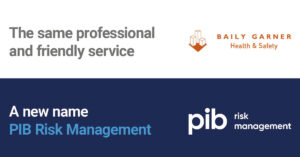With the current weather conditions, the risk of flooding may not be the highest priority. However, it is important that businesses prepare for likely emergencies and some parts of the country can be at high risk of flooding.
Despite the availability of free flood risk warning services, they are not always as widely used as they could be. The Environment Agency recently revealed that in some areas of Lincolnshire up to 80% of at risk coastal communities were not yet fully registered.
Quick and effective response to an emergency can help manage risks and reduce the consequences. Having a plan in place could be the difference between your organisation staying afloat or going under.
An emergency response plan should typically consider the following points:
- What could happen and how would the alarm be raised.
- Important contact details e.g. staff, visitors, emergency services etc.
- Who would take control in responding to a situation.
- What emergency response action would need to be taken?
- The locations of important services e.g. do the emergency services need to be alerted to the presence of hazardous substances, can gas and electricity supplies be identified and shut off, emergency plant shut down procedures, etc?
- The availability of emergency response equipment e.g. sand bags or flood gates to protect property and personnel from a flood, absorbent materials to soak up spillages etc.
- Training for members of staff.
Please speak to your normal PIB Risk Management contact if you would like to discuss any issues regarding developing an emergency response plan for your organisation.
You can find out more and sign up to flood warning services using the following websites:
England https://www.gov.uk/sign-up-for-flood-warnings

A new name for Baily Garner (Health and Safety) Limited

50 Years of the HSE and the Health & Safety at Work Act

Building Fire Safety Updated Approved Document B Published

Protecting Properties Against Flooding

The Building Safety Act – Are you meeting your legal responsibilities?
